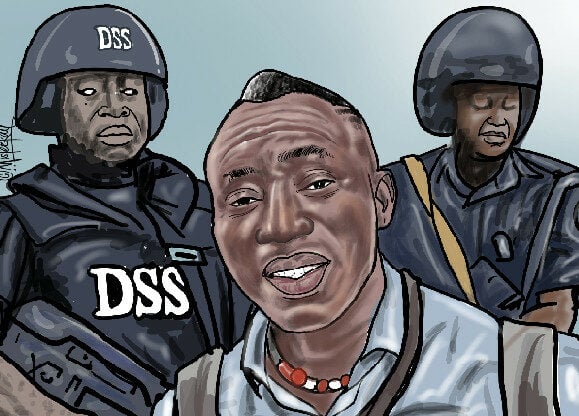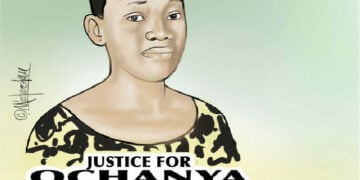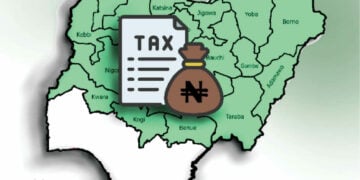In the last two weeks or so, the Department of State Services (DSS) and former presidential candidate of the African Action Congress (AAC) cum activist, Omoyele Sowore, have been engaged in a battle of wits over alleged rights violations of freedom of speech. The reason for the current disagreement, which has now snowballed into legal fireworks, has to do with Sowore’s tweet on X (formerly Twitter), which the secret police have labeled not only offensive and outrageous but also calculated to cause public revulsion and incite public outrage against the government.
In a letter to X Corp and Meta (Facebook), where the offensive tweet was deployed, the DSS urged the activist to delete the tweet. Since the emergence of Mr. Adeola Oluwatosin Ajayi as DG of the agency, the DSS has been involved in reforming its operations and ridding itself of previous negative impressions. For the agency, it has been a long walk within the span of several decades when the mere mention of its acronym would send fear down the spines of many.
A new wind of change, anchored through due process in line with the rule of law, now holds sway in the DSS. The dark years of the Gestapo operations, characterised by incidents of gun-wielding men in hoods, have been replaced with growing confidence by the public in the DSS. Arbitrary arrests and illegal detentions have no place in a democracy, as the DSS is not letting down on efforts to address past injustices.
Apart from ensuring that the past is reframed in line with democracy, the secret police are taking their deserved place in promoting democratic ideals and ensuring no one is allowed to languish in jail. In demonstration of the new vision of ensuring justice is served, the DSS this year approved the payment of N10 million as ordered by the court to a Sokoto-based businessman who was shot by its operatives in 2016.
To alleviate the psychological trauma and assist him with funds to resuscitate his ailing business, the secret police also approved an additional N10 million. The victim of the accidental shooting is also to enjoy medical treatment from the agency.
Limits on Free Speech
Drawing copious reference to the First Amendment of 1791 that recognised freedom of speech in the American Constitution, our nation’s Constitution also identifies limits to freedom of speech. When the right to free speech is not properly observed and respected, an advantage is created for persons to launch tirades against others and incite the public against them.
When Sowore tweeted on his official X handle, ascribing derogatory terms against the person of President Bola Ahmed Tinubu, it ran against public decency, as it is common knowledge that no person can be described as corrupt without a judicial pronouncement.
Therefore, Sowore’s tweet was described as a deliberate act of casting aspersion and lowering the estimation of the president and the presidency in the eyes of Nigerian citizens and the world.
After the expiration of the ultimatum for him to delete his post, the DSS filed cybercrime charges against Sowore for making false posts against the president to cause a breakdown of law and order in contravention of Section 24(2)(b) of the Cybercrimes Prohibition and Prevention Act 2024. There have been varying reactions to the matter since Sowore filed a countersuit to challenge what his legal team described as “unconstitutional censorship.”
Many are asking if it’s right for the DSS to remain silent in the face of deliberate efforts to disparage the office and person of the president.
Discordant Tunes
Taking into consideration the footprints of the past, where opponents of the government were hounded down into detention with no hope of early release, the current efforts at bringing Sowore to face the law by the DSS should be a welcome norm, as observed in advanced democracies, and should be encouraged. While the former presidential candidate of the AAC has enjoyed his inalienable right to freedom of speech, that freedom is not absolute. It must be adhered to in accordance with the provisions of the law and the rights of others.
Though Section 39 of the Nigerian Constitution guarantees the right of every citizen to freedom of expression without interference, some argue that in exercising such rights, caution must be observed to avoid violating the rights of others. Freedom of speech advocates may insist on their right to free speech; it must also be reiterated here that no government would remain nonchalant in allowing its cyberspace to be seized upon by political activists, aided by disillusioned politicians still smarting from the pains of electoral defeat, to unleash falsehood.
Much as there is nothing to worry about in the current legal fireworks over the alleged offensive tweet, the courts should be allowed to deliver a judicial pronouncement. Avoiding the past, however, attempting to draw a line in starting what is right, as shown by the DSS, those opposed to the current moves may be prone to simply dismissing this as politically motivated. The legal tussle before the courts may turn into a lever for distraction.
While the rights to free speech by Nigerians are yet to be tampered with under the Tinubu-led administration, agencies of government that are mandated with the responsibility of maintaining public order cannot go to sleep without reining in potential threats to incite violence.
With the courts set to commence hearings on the matter, the days ahead may reveal curves and subtle plots by disillusioned persons plotting for regime change in 2027. With less than two years to the next elections, spreaders of hate speech and desperate campaigners are bound to deploy social media platforms to introduce toxicity into the political arena. Politicians must know the limits of their rights to freedom of speech to ensure that the rights of others are not violated.





